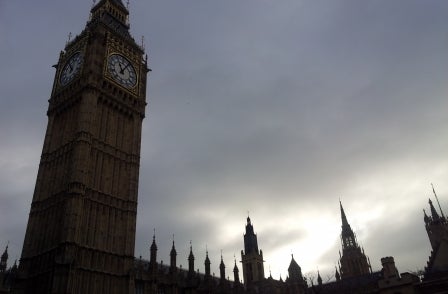
The Government has said that the system of press regulation proposed by publishers would be more open to political interference than the one put forward in a cross-party deal.
The main newspaper and magazine publishers have rejected the cross-party press regulation plan and are seeking judicial review over the Privy Council’s decision to reject their proposal.
They are now pressing on with the creation of the Independent Press Standards Organisation.
In order for a new regulator to protect publishers from exemplary damages in civil legal actions, it must by licensed by a recognition body which is underpinned by a Royal Charter. The Government Royal Charter can be changed with a majority of both Houses of Parliament. The publisher-backed Royal Charter states that it can only be changed in future with the unanimous agreement of its board, the external recognition panel and the various industry trade associations which help fund it.
But the DCMS said in a statement that ministers could amend the publishers' Royal Charter.
It said: “We welcome the progress the industry has made on setting up a self-regulator but we’re disappointed the press are intending to resort to legal action.
“The Industry Royal Charter was considered in an entirely proper and fair way by the Privy Council Sub Committee and the reasons they were unable to grant it are in the public domain. Whilst they found acceptable areas, they outlined fundamental issues that were not compatible with the Leveson principles such as a lack of independence around appointments and funding and no requirement to provide an arbitration scheme. Additionally, it allowed for political interference, with ministers able to change the charter without restriction.
“The Government is working to bring in a system of independent press self-regulation that will protect press freedom while offering real redress when mistakes are made. The Culture Secretary pushed hard for recent changes on arbitration and the standards code to be made, which will ensure the system is workable and the stated intention to go to court is particularly disappointing in light of these changes.”
Hacked Off, the pressure group which represents the victims of press intrusion, said: "The people leading this part of the newspaper industry are exposing themselves as desperate and deaf.
"Desperate, because they are now resorting to a legal challenge to something based on the findings of a public inquiry, and backed by the victims of press abuse, all parties in Parliament and the overwhelming majority of the public.
"Deaf, because they refuse to listen to the evidence that there is no threat to the free press and that this deal actually benefits the press, both financially and in terms of freedom of expression.
"Their actions, coming in the last few days before the cross-party charter is sealed, are entirely predictable and self-serving.
"It's time they calmed down, listened, and did what the public expects of them."
Email pged@pressgazette.co.uk to point out mistakes, provide story tips or send in a letter for publication on our "Letters Page" blog
